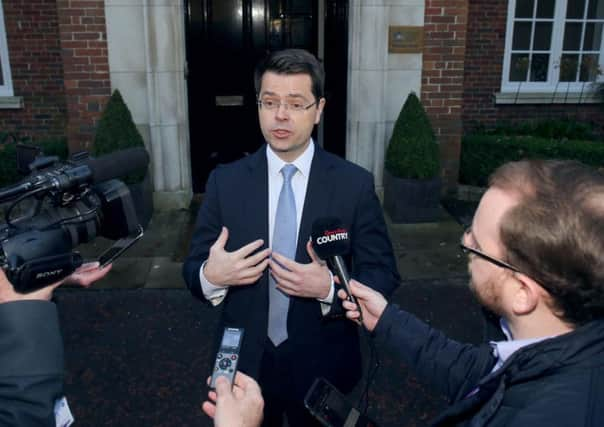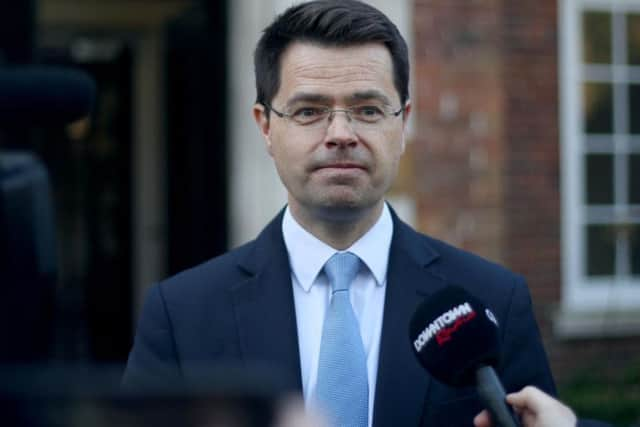Northern Ireland Secretary pushing for resolution to Stormont crisis


James Brokenshire acknowledged that a poll is a "high probability" but said he would keep engaging with the region's feuding parties in a bid to avert it.
If consensus on a range of disputes between Sinn Fein and the Democratic Unionists is not achieved by Monday, Mr Brokenshire is obliged by law to call an election, potentially for late February or early March.
Advertisement
Hide AdAdvertisement
Hide Ad"My focus is on the here and now, on what can be achieved now, on what opportunities there are, what the potential may be to bring people together, rather than see people be driven further apart," he said.
Mr Brokenshire warned that finding agreement would be harder on the other side of a divisive election.
His remarks came after apparently contradictory comments from senior Sinn Fein figures on the possibility of talks with the DUP ahead of a poll.
After meeting Mr Brokenshire in Belfast, Sinn Fein Health Minister Michelle O'Neill said the UK Government needed to press ahead and call a poll.
Advertisement
Hide AdAdvertisement
Hide Ad"We are not interested in trying to get into negotiations now - what we need is fundamental change," she said. "We believe the public need to have their say."


Around the same time, addressing the media in Dublin, Sinn Fein president Gerry Adams said: "We are always open for talks and we are always open to meet. Of course we are."
Sinn Fein denied sending mixed messages and insisted its position was clear - that an election needed to happen come what may, but the party would not rule out meetings with others in the interim.
DUP leader and former first minister Arlene Foster has indicated she would be open to talks with Sinn Fein.
Advertisement
Hide AdAdvertisement
Hide AdMr Brokenshire and Irish foreign affairs minister Charlie Flanagan are holding separate bilateral meetings with Stormont parties in an effort to chart a way through the crisis.


The latest twists in a week of high drama at Stormont came as Theresa May made clear in the Commons that events in Belfast would not derail the Government's timetable for leaving the European Union.
The Prime Minister rejected a challenge from Scottish National Party MP Angus Robertson to postpone the start of EU withdrawal talks under Article 50 because, he argued, Northern Ireland would be left without a voice in the process.
Mrs May responded: "We have been clear on the timetable for triggering Article 50 and we will be sticking to that.
Advertisement
Hide AdAdvertisement
Hide Ad"We are going to focus on how we can support political stability in Northern Ireland, recognising the progress that's been made and not wanting to put that at risk and engaging with all the parties."
On Tuesday evening, Mrs May and Irish premier Enda Kenny discussed the crisis on the phone.
They pledged to work together to find a way through the political storm that has threatened devolution.
The collapse of the institutions was triggered by the resignation of deputy first minister Martin McGuinness on Monday.
Advertisement
Hide AdAdvertisement
Hide AdThe Sinn Fein veteran's move, in protest at the DUP's handling of a botched renewable energy scheme, forced Mrs Foster from her post as first minister.
The region faces the prospect of direct rule from Westminster being reintroduced if the fallout between the DUP and Sinn Fein cannot be resolved on the other side of an election.
While the looming collapse of power-sharing was triggered by the Renewable Heat Incentive (RHI) affair - a scandal that has left Stormont with a £490 million bill - other disputes between the two main parties have been reignited by the furore.